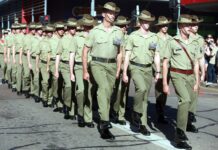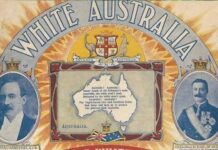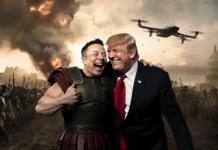Doctor Who is a curious beast. When it works it can have jaw dropping plot twists, incredible emotional beats and, most importantly, be incredibly entertaining. When it
doesn’t it is just embarrassingly bad.
While a lot of television has quality peaks and troughs throughout the course of a season, Doctor Who seems to have the rare ability to have it’s own mood swings between being awesome and bollocks within the course of a single scene.
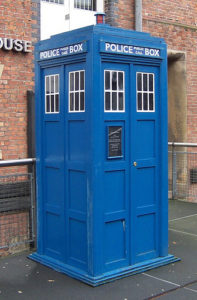 The show also has the disadvantage/advantage of it’s own format. The flexibility allowed the producers to take the show in any direction they desired, which meant that literally anything could happen without breaking the basic suspension of disbelief of the show’s premise. The Doctor was a time travelling alien who could go anywhere he wanted.
The show also has the disadvantage/advantage of it’s own format. The flexibility allowed the producers to take the show in any direction they desired, which meant that literally anything could happen without breaking the basic suspension of disbelief of the show’s premise. The Doctor was a time travelling alien who could go anywhere he wanted.
Accept it. Enjoy it.
On the down side the target audience of the show was often hard to define. It was originally intended to be ‘family’ viewing with a side serve of historical education. Mum and Dad could sit down with the kids after dinner and everyone could enjoy some quality time together before returning to their drab mono-chrome existence of the four day week, union membership and the National Health Service and/or whatever British people actually did in the 60s.
This ‘it’s a kids show’, coupled with the intellectual snobbery that believed that science fiction wasn’t real literature, could and did become a convenient excuse for just churning out any old rubbish as scripts and production standards. When NuWho was brought to our screens back in 2005, Executive Producer Russell T Davies resisted the urge to conduct a gritty re-boot filled with grey morality, and grim ‘adult themes’ and stayed true the original family audience target, successfully gaining a massive new youth following. Unfortunately, many of the following writers and producers involved since the 2005 re-launch do not seem to grasp the difference between a story that a child will enjoy watching and and writing down to your audience because some of them may only be six and frankly, many of the NuWho episodes, despite talented actors, good intentions and quality special effects, are basically let down by story lines that are rather crap.
So, back to 2017, and there is new Doctor Who on television for us all to watch. At the time of writing we have three episodes to discuss before your author actually gets to the point. First up we have ‘Pilot’, which is the traditional entry point episode for new viewers filled with stupid questions.
It’s mostly harmless. We get a new companion with Pearl Mackie’s character of Bill who is good natured, slightly socially dorky and (edgy progressive concept warning) possibly a tad gay. Or possibly a tad dorky. Or both, but basically successfully ticks all the boxes for an audience proxy and seems a lot of fun. On the down side, while Mackie’s Bill seems well rounded and developed, with the writers having a strong understanding of how they want the character presented, the same cannot really be said for Peter Capaldi’s Doctor. After nearly 20 episodes it still seems uncertain if the character is meant to be a so called ‘cool Dad’ complete with sunglasses and guitar, a quirky enigma in the style of Tom Baker’s fourth doctor, or channelling Peter Capaldi’s own fictional character of Malcolm Tucker. As mentioned before; good intentions, bad writing.
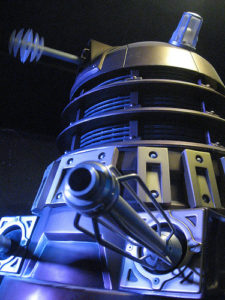 Apart from all that, this episode is basically Doctor meets Bill. Bill meets girl. Girl becomes alien water monster and, on the power of one mutual lingering look and a few lines of conversation, goes full Bunny Boiler and stalks Bill across all of time and space. It’s all rather harmless, Matt Lucas gets all the best lines, it covers all the back story information for new viewers and also teaches us some important life lessons. First, it is not really attempted murder if you trick a Dalek into pulling the trigger for you and second, if you ever meet an attractive but socially awkward person who likes staring at their reflection in puddles, then they are probably not good relationship material.
Apart from all that, this episode is basically Doctor meets Bill. Bill meets girl. Girl becomes alien water monster and, on the power of one mutual lingering look and a few lines of conversation, goes full Bunny Boiler and stalks Bill across all of time and space. It’s all rather harmless, Matt Lucas gets all the best lines, it covers all the back story information for new viewers and also teaches us some important life lessons. First, it is not really attempted murder if you trick a Dalek into pulling the trigger for you and second, if you ever meet an attractive but socially awkward person who likes staring at their reflection in puddles, then they are probably not good relationship material.
Also Missy, the new female Master, is totally locked in that vault in the basement, because, Spoilers!
Next we have ‘Smile’. Here, Bill and the Doctor travel to another planet where they meet a Douglas Adams B-Ark style group of idiots, and their carer robots who have decided it is now best to murder humans for their own good. We also get to see the Doctor commit what is effectively robot AI genocide before, minutes later, telling the humans the new, rebooted robots now own the planet and everyone now needs to learn to live together.
Irony? Nah, it’s a Kids Show(tm).
We also have robots who’s single method of human interaction is to show emoji on their face plates. If we ignore the question as to why one of these pre-programmed icons is a murder-death face on a robot designed and built to assist human colonist, we are still left with an interface system with an extremely limited vocabulary, that would be next to useless for explaining anything but the most basic concepts. After all, you try warning someone that Timmy is trapped down the well with only smiley faces to play with. Honestly it would be simpler to just bark.
The showrunners also missed a wonderful post-credits moment with this episode where they could have shown the human colonists dealing with the robots after the Doctor left in exactly the same way the Doctor had dealt with them earlier – switching them off and on again.
Matt Lucas also gets all the best lines.
Which brings us to ‘Thin Ice’ and the entire point we were talking about earlier.
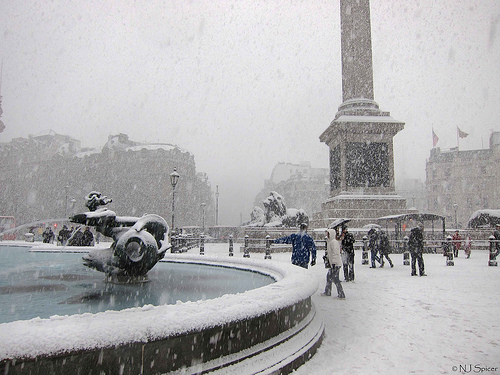

Thin Ice is one of the semi-historical episodes the show likes to spring on the viewers from time to time. The historical was the last of the Thames Ice Fairs in 1814 and the semi was the giant sea monster trapped under the ice and occasionally eating people.
Let us skip the questions of the 1830s diving suits, avoid the historical lack of sanitation which made the Thames pretty much an open sewer, and ignore the physical logistics of hiding a creature that size in that part of the river, and talk instead about the show’s utter shame of British history. Bill, who of course is a good 21st century girl educated in the correct 21st century manner, ie White People(tm) hate and oppress Black People(tm), makes the statement before the title credits have even run that ‘slavery is still totally a thing’.
Well, technically, but we are in England at the time and perhaps it might be nice to have a quick trip through what actually happened.
We are in 1814. Chattel slavery had ended with the Norman invasion, replaced with serfdom. There did exist the concepts of workhouses where the poor had to earn their keep, and transportation of criminals was actively encouraged, but there was no legal right to own slaves within English or Welsh statutes, and the Somersett’s Case of 1772 declared there was no right within common law either. Lord Mansfield, Lord Chief Justice of the King’s Bench, past judgement that a person, slave or not, could not be removed from England against their will. True, he carefully avoided passing formal judgement on the rest of the British Empire, but it did mean that slavery within England and Wales was now illegal, and it is estimated that some ten to fourteen thousand slaves within those countries were emancipated by this ruling.
1772. So 42 years before 1814 for those playing at home.
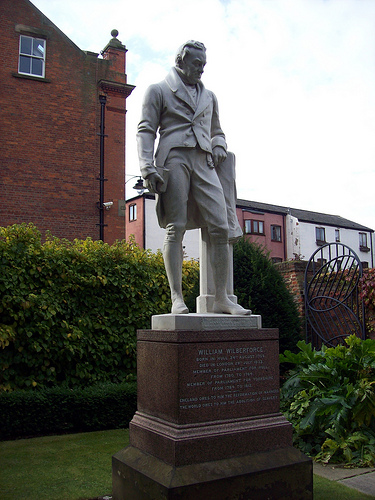

We then unfortunately have to wait until 1807 when abolitionist William Wilberforce succeeded in the passing of the Slave Trade Act of 1807. It was now illegal within the British Empire to trade in human misery and also, with the knowledge that simply saying something does not necessary make it happen, established the West Africa Squadron of the Royal Navy with the express purpose of seizing slave ships and freeing their captives. The squadron existed until 1870 when it was merged into the larger Cape of Good Hope Station, and was credited with capturing 1600 slave ships and freeing 150,000 Africans between its founding and 1860.
Slavery within the rest of the British Empire, with the exceptions of the East India Company, Ceylon and Saint Helena, was abolished by the Slavery Abolition Act 1833, and those exceptions only lasted another 10 years before being eliminated. As a comparison in dates, by 1833 Abraham Lincoln was 24, had only just entered politics and was yet to win his first election.
So returning to our harmless children’s television show, Bill is correct that slavery is totally a thing… elsewhere in the world. Within Britain there has been no legal right to own slaves for 42 years and it has been illegal to transport slaves within the Empire for nearly seven years. Bill, within 1814 London, was completely legally safe in exactly the same way every other person of every other race was completely legally safe. England was anti-slavery and would not only talk about it, but continue to spend vast amounts of time, money and manpower patrolling the world’s oceans for the rest of the century to forcibly encourage the rest of the world to be anti slavery as well.
And the television show just ignores this.
The show then goes on to introduce a villain so heavy-handed he might as well have been called Raymond Cyst (his friends call him Ray) who liked to light cigars off of burning kittens, and the show largely transferred from downhill to rapidly descending. There were developments with the plot. There was some implication that the frozen river was caused by the giant sea monster, probably because humans cause global warming or something similar; some annoying street urchins and possibly an unintended suggestion that renewable bio-fuel is morally evil, but by then your author was rapidly becoming bored by the entire experience and skimmed to the end just in time to see Matt Lucas get all the best lines.
Now, one does accept that the premise of the show is no longer to educate the young kiddies about the mysteries of the past. One also accepts that to our modern cultural standards, there are great parts of the past that are awkward to justify and should not be celebrated. They should also not be ignored. By confronting and examining the uncomfortable periods of history we may not be able to make up for the sins of our distant forebears, but we can at least form a moral direction to ensure that actions that disturb us never happen again.
There is also the counter side of history that shows that in some cases there is plenty of which to be proud. The Britain of the late 18th and following 19th century was anti-slavery. Let us recap. 1772, Somersett’s Case proving there is no legal right to own slaves within England and Wales. Slave Trade Act of 1807, now making it illegal to traffic slaves within the Empire, followed a year later but the formation of a naval unit to actively and, if need be violently, enforce this law.
All of this well before our Doctor Who adventure set in 1814, and all of which you might think may have been worthy of at least a minor name check. Yes Bill, slavery in 1814 was still totally a thing, but not in the country you were currently standing in and not supported by the people you are standing next to. You might think that these historical acts of human decency might be something a nation could feel proud of, and something to which the producers and writers of a television series might feel interested in drawing attention.
Instead the show decided to casually change the subject, being more interested in having heavy-handed, almost pantomime villains, and the implication that if you are white and non-Scottish, then you are probably a right racist prick.
Doctor Who continues on Sundays.


